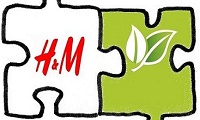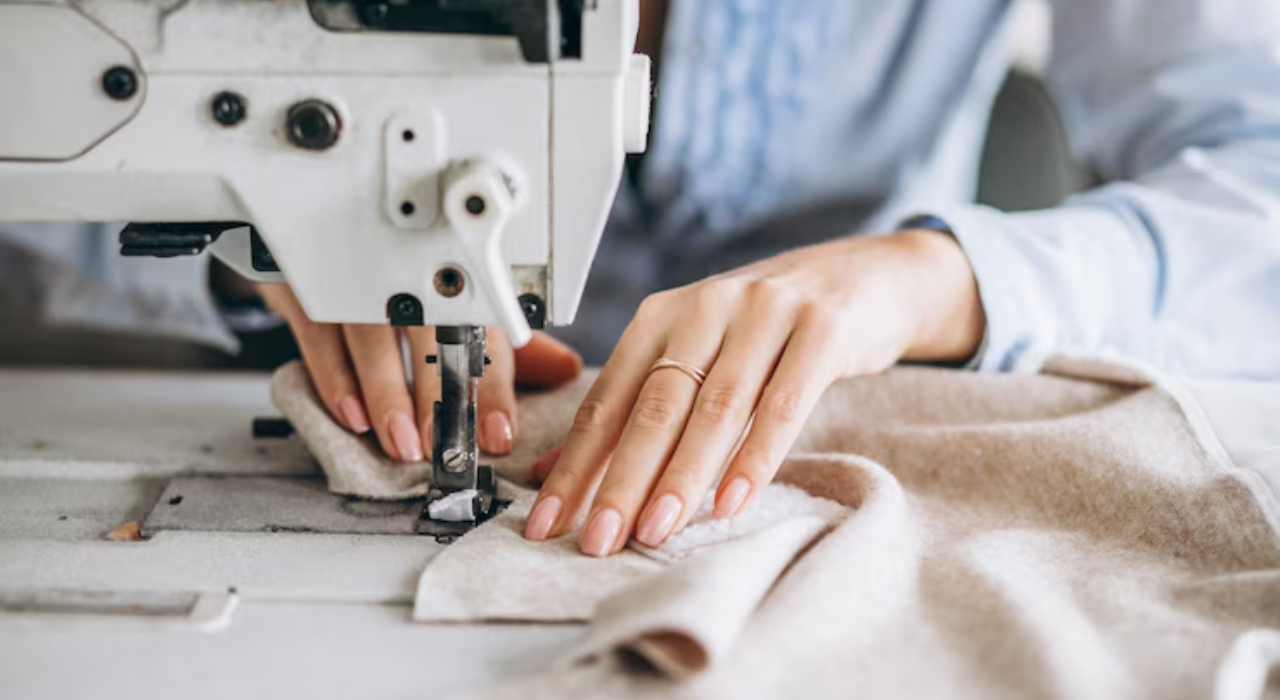FW
Dubai’s apparel and footwear market accounts for the largest share of the Emirate’s retail sector. Apparel leads the category with a 73 per cent market share, followed by footwear (18 per cent) and sportswear (nine per cent). This trend is expected to continue through 2021, leading the category to achieve a projected compound annual growth rate of 3.4 per cent in the medium term.
Demand within this segment was supported last year by value offerings from retailers, particularly during shopping festivals and sales events. Easing of UAE visa regulations to some countries is expected to drive tourism, which will likely have a positive impact on Dubai's retail market as the emirate prepares to attract up to 20 million tourists annually by 2020.
This trend will result in a change in the demographic and characteristics of visitors. So retailers in the Emirate will need to adjust and expand their offerings to cater to diverse consumer groups.
Dubai’s global air connectivity and its growing stature as a hub for trade between the East and West, has clearly given an added impetus to the retail sector. Dubai continues to remain the clear destination of choice for the majority of the brands looking to enter the region for the first time, frequently using the emirate as a stepping stone to wider regional expansion programs.
Adidas has unveiled the world's first high performance footwear featuring midsoles crafted with light and oxygen using Digital Light Synthesis. The footwear is named Futurecraft 4D. The midsole was brought to functional reality through a pioneering digital footwear component creation process that eliminated the necessity for traditional prototyping or moulding.
Digital Light Synthesis is a breakthrough process that uses digital light projection, oxygen-permeable optics and programmable liquid resins to generate high-performance, durable polymeric products. Futurecraft 4D is Adidas' first application of Digital Light Synthesis and represents the brand's step into athlete-data driven design and manufacturing.
Unlike any traditional manufacturing technology, Digital Light Synthesis allows Adidas to precisely address the needs of each athlete with regard to movement, cushioning, stability and comfort with one single component.
This new take on manufacturing enables Adidas to bring even the most intricate designs into physical reality. It overcomes the shortcomings of conventional additive manufacturing methods such as low production speed and scale, poor surface quality, and color and material restrictions. Without these limitations posed by traditional production methods, Adidas can now bring the best and most innovative products to consumers faster than ever.
Adidas, based in Germany, is a global leader in the sporting goods industry with core brands Adidas and Reebok.
"Pure London, the premium event for progressive fashion buyers, introduced an inspiring curated line-up of women’s wear, footwear and accessories brands for its forthcoming show. These include exclusive brands, up-coming and established designers with buyer favourites such as United Nude, O’Neill, Irregular Choice, Ebarrito, King Louie, Emily & Fin, Thought, Joe Browns, Noa Noa, Ying Cai etc. Taking over the vast Grand Hall at London Olympia from February 11-13, the curated show sectors will deliver a stunning range of collections selected to match buyers needs."

Pure London, the premium event for progressive fashion buyers, introduced an inspiring curated line-up of women’s wear, footwear and accessories brands for its forthcoming show. These include exclusive brands, up-coming and established designers with buyer favourites such as United Nude, O’Neill, Irregular Choice, Ebarrito, King Louie, Emily & Fin, Thought, Joe Browns, Noa Noa, Ying Cai etc. Taking over the vast Grand Hall at London Olympia from February 11-13, the curated show sectors will deliver a stunning range of collections selected to match buyers needs.
Designers’ delightful creations

This is the first trade show for Siah Howard, one of London’s leading Atelier Couture designers known for her impeccable style and taste. Her distinctive signature is of understated elegance, sophistication and balance, using the most luxurious fabrics and exquisite embellishments. Another London brand showing for the first time is Andaj London, a new handmade fashion label producing high quality women’s coats crafted by skilled women using high quality fabrics such as leather, cashmere, angora and wool. Four exciting brands showing in the UK for the first time are German brand Gipsy 2.0, Italian designer Virna Dro, Jalabiyé from Istanbul, and from South Africa Geo by George.
With over 40 years of experience in leather outerwear, Gipsy 2.0 brings its latest sustainably sourced collection and classic leather, suede and lambskin jackets to Pure London. Jalabiyé is an eco-responsible high-end brand designed for modern and spiritual woman. Creating a platform for the Middle Eastern and European woman to meet in dialogue, Jalabiyé aims to break the traditional code of modest fashion, and focuses on natural fibres such as cashmere, wool, silk and cotton. The Geo by George label creates timeless ready-to-wear pieces for the individual women that want to look stylish and effortless every day. Established in 2017 by George Sander, Geo by George presents its first Cruise 2018 collection at Pure London. Distinguished craftsmanship and hilarious fantasies combine under the direction of Italian designer Virna Dro’.

Meanwhile, award-winning South African women’s wear brand, Tamara Chérie, offers a minimal, structured approach to her luxury ready-to-wear collection of soft tailoring and refined silhouettes. Other Premium brands include Jane Lushka, Argiddo and Carla Ruiz, The Cocoonalist, Divas, Ribes of Love, An Rheas, Coster Copenhagen, Choiboko, Yerse, Rino & Pelle, Bitte kai Rand, Jessica Russell Flint Design, URBAHIA, Isabel de Pedro, Zambak, Beate Heymann, Silvian Heach, Esmeralda, Tahlia, Dixie, Animapop, Denim Studio, Dina Shaker, KARMA KOMA, Coosy, Ying Cai, Millie & Elizabeth, Denim Hunter, and The O Boutique.
Athleisure on demand
The ever-growing athleisure section showcases the latest ranges in activewear, yoga wear, swimwear and underwear. Brand new in the UK market, from Australia, Free Spirit is an Ethical Yoga Wear brand show casing their collection of 100 per cent sustainable, organic cotton & bamboo tanks, tees and sweats, while an eclectic mix of statement leggings complete the studio to street look. Chikirina a hybrid active/swim/lifestyle brand offering ‘live-in’ multi-functional items that can transition from gym to street, street to beach, and day to night. Holidolls is a spectacular new swimwear line designed to impress and made to show off curves. Stunningly sexy and daring ‘swimgerie’ is handmade and embellished by Italian craftsman.
New premium accessories brand Emma & Chloe joins the line-up, as does ‘build your own bag’ brand O Bag, specialising in customisable handbags and watches, enabling customers to choose the body, handles, interior, exterior trims and additional accessories to create a truly unique bag. For stylish and practical lifestyle travel accessories look out for Frequent Flyer. Its simple designs and functional details are the best fit for modern travellers. The collection contains six travel necessities including a trolley, a large backpack, a small backpack, a large pouch, a small pouch and a camera case.
"Hennes & Mauritz AB recently set the next milestone with a pledge to use only recycled or green materials in its products by 2030. Crafted in 2016, Sustainability Report, H&M will work towards reducing greenhouse gas emissions, aiming to be climate positive throughout its entire value chain by 2040. The retailer has been on green initiatives spree for quite sometime now and there’s no looking back. In the same vein, Inditex also unveiled a major program last year, including the development of new textile fibers and a wide-scale domestic recycling project."

Hennes & Mauritz AB recently set the next milestone with a pledge to use only recycled or green materials in its products by 2030. Crafted in 2016, Sustainability Report, H&M will work towards reducing greenhouse gas emissions, aiming to be climate positive throughout its entire value chain by 2040. The retailer has been on green initiatives spree for quite sometime now and there’s no looking back. In the same vein, Inditex also unveiled a major program last year, including the development of new textile fibers and a wide-scale domestic recycling project.
H&M’s long route to meet sustainability standards

H&M launched the Conscious Collection in 2011, using sustainable materials such as organic cotton, organic linen, Tencel and recycled polyester. This was followed by a garment collection program that allows customers to drop off used clothing at its stores in 2013. According to Anna Gedda, Head–Sustainability, H&M, interest in sustainability is increasing all over, from customers to shareholders to other brands and other actors within the industry and the efforts have been appreciable. Environmental group Greenpeace has rated H&M and Inditex among the front-runners in its ‘Detox My Fashion’ campaign. Together with Benetton, they were awarded ‘avant-garde’ status last year for their progress toward the goal of eliminating hazardous chemicals from the manufacture of clothes by 2020.
H&M reported that recycled and other sustainably sourced materials accounted for 26 per cent of the textiles used in its products last year. But Gedda said supply of sustainable materials was insufficient for future industry needs. There is a need to expand and scale up more sustainable cotton cultivation that takes place today, both including organic but also better cotton, and then invest in a lot more innovation. For example, making new products out of old ones is done on a limited scale. Companies can do it with denim but because the fiber is so delicate, they need to blend in new material as well. In future, H&M only wants to use old fibers, Gedda explained.
To keep up with sustainable practices, H&M has been meeting entrepreneurs developing technology concepts that make the clothing industry more sustainable. H&M has so far collected 39,000 tons of unwanted textiles through its stores, equivalent to 196 million T-shirts, according to Gedda. By 2020, it aims to collect at least 25,000 tonne of textiles every year, up from 16,000 in 2016. Becoming 100 percent circular, of course, involves more than just materials: It involves how the products are designed, how the material is processed and also how the product is used by the consumer and what happens with the material afterwards, she added.
Setting site on climate goals
To achieve its climate goal, H&M will focus on energy efficiency, renewable energy and compensating for unavoidable emissions with efforts to boost the planet’s climate resilience and support so-called carbon sinks, projects such as forests that capture carbon or other global-warming pollutants from the atmosphere. The company also pledged to switch to 100 per cent renewable electricity. Last year, 96 per cent of its global electricity in its own operations came from renewable sources, up from 78 per cent in 2015. H&M is not passing on the extra cost of more sustainable materials to its customers. The company has been working with organic cotton for a really long time, and that extra price is not paid by the consumer but by the company. For H&M, it is simply an investment in the product and what customers expect from the company, said Gedda.
Bangalore is gearing up to host Planet Textiles on May 24, 2017. The event is about sustainability and social compliance in the textile sector. This time, Timberland and Thread will give a joint presentation on their collaboration in poverty stricken Haiti where Thread shipped nearly 2,00,000 lbs of recycled plastic out of the country to eventually be processed into textiles, garments and footwear which in turn has provided employment for poor local families in the country.
Water availability, costs, efficiency and environmental solutions in textile dyeing and wastewater discharge; water use, disposal, and remediation in the denim industry; water conservation in wet processing, wastewater discharge in the textile supply chain, the circular economy and the rise of environmental awareness in India will dominate this year’s Planet Textiles summit.
From 2017, Planet Textiles will focus more on implementation and practical side of sustainability in the textile supply chain with real-world case studies and examples of best practice. Use of water in growing cotton will feature strong at the event. India happens to be the world’s largest cotton producer.
The ZDHC Group will reveal results of pilot tests of studies done at textile mills that have adopted its pioneering wastewater discharge guidelines. This year’s event partner will be leading manmade cellulosic fiber supplier Lenzing, which will unveil its latest sustainability report.
The global spandex fiber market is expected to register a CAGR of 8.8 per cent in the period 2016-2022. There is a rise in demand for spandex fiber from various end-user industries and an increase in application scope owing to its superior properties. Also, the launch of bio-based, eco-friendly spandex products is expected to drive demand over the forecast period.
The solution dry spinning segment is expected to generate the highest revenue throughout the forecast period. In 2015, North America and Europe collectively accounted for more than one-fourth of worldwide demand for spandex fiber. But they are expected to lose share over the forecast period and Asia-Pacific is projected to be the fastest growing region, with a CAGR of 9.5 per cent in value terms.
Asia-Pacific is seen as the most attractive market for new entrants along with industry players, as growth in the number of industries and increased expenditure on R&D is expected to provide significant opportunities to entrants. The physio-chemical properties of spandex fiber, such as elasticity, durability and abrasion resistance, have increased its penetration in a wide array of applications. In 2015, the apparel and clothing segment was the largest application segment, which is expected to grow at a CAGR of 8.9 per cent in terms of revenue, followed by home furnishing and other segments.
"Four denim fabrics developed by Prosperity Textile have been named top products and selections at the ISPO TEXTRENDS 2017 Fall/Winter. Two, in Street Sports and two, for the Eco Era category. The selected fabrics include A3716-11, a denim fabric providing ultra-high abrasion resistance with 4 percent Dyneema to offer extra protection, two times better in wear-resistance and strength tests, while still be light, versatile and soft. It has been selected among top 10 Street Sports category. RA3939A-4 is a top 10 denim fabric in the Eco Era category."

Four denim fabrics developed by Prosperity Textile have been named top products and selections at the ISPO TEXTRENDS 2017 Fall/Winter. Two, in Street Sports and two, for the Eco Era category. The selected fabrics include A3716-11, a denim fabric providing ultra-high abrasion resistance with 4 percent Dyneema to offer extra protection, two times better in wear-resistance and strength tests, while still be light, versatile and soft. It has been selected among top 10 Street Sports category. RA3939A-4 is a top 10 denim fabric in the Eco Era category. It comes with BCI Cotton, Tencel and S.Cafe (polyester made from recycled coffee grounds) to offer eco and functional denim with good odour control, quick-dry and UV-protection. RA3240-39 denim fabric has been selected in the Street sports category. Its Coolmax all season technology provides quick-dry and lightweight warmth. The selection in the Eco Era category includes RA2713-21 fabric. With 58 percent Tencel and 33 percent Coolmax EcoMade, which is 97 percent sourced from recycling plastic bottles, this denim fabric delivers an amazing eco-friendly concept and cooling performance.

“We are proud to have our denim fabrics selected as the top products & selections of ISPO TEXTRENDS again, for our commitment to innovation and sustainability. Over the years, we have been developing denim with upgraded performances, interesting surfaces, soft-touch and eco-friendly ingredients, to meet the growing demand of sportswear and outdoor apparels customers. We will continue our efforts to relentlessly drive the innovation of denim,” said Xiang Gu, General Manager of Prosperity Textile.
Founded in 1995, Prosperity Textile is aleading denim fabric manufacturer with 60 million yards capacity, providing R&D, design and manufacturing services to global garment clients. ISPO TEXTRENDS is the platform for textile innovations and components. Twice every year, ISPO honours innovative fabrics and components that are used to manufacture sports apparel with ISPO TEXTRENDS.
The European Union has granted Pakistan GSP Plus status till 2023. This enables Pakistan to increase exports of traditional and non-traditional products to EU member states. Pakistan and the EU share a strong bond in trade and investment. Pakistan sees the EU as an important trading bloc.
The EU accounted for 12.8 per cent of Pakistan’s total trade in 2015 and absorbed 23.7 per cent of Pakistan’s exports. More than 80 per cent of Pakistan’s exports to the EU consist of textile and clothing. Pakistan’s imports from the bloc mainly consist of machinery and transport equipment as well as chemicals.
Almost 72 per cent of Pakistan’s exports to the EU go to the UK, Germany, Spain, the Netherlands and Italy. Pakistan is looking forward to opportunities of market penetration in other countries like Greece, Slovenia and Ireland.
Pakistan wants to export agro-based processed foods in collaboration with European companies through joint ventures and transfer of technology. The GSP Plus status is monitored and reviewed every two years.
The enhanced trade preferences under GSP Plus are of particular importance to Pakistan’s textile and clothing industry. Over 70 per cent of EU imports from Pakistan are textiles and clothing.
It looks like knitwear manufacturers in Tirupur are not interested in raising capital through the equity market route. Perhaps, that is why SME-friendly dedicated trading platform Emerge has had no takers. Apparently small and medium enterprises fear loss of administrative control. Stigma relating to dilution of ownership and ignorance on the benefits of raising fund through an IPO is preventing Tirupur entrepreneurs from getting into stock market.
Emerge is an exclusive Initial Public Offering window which has been made available through the National Stock Exchange. Under Emerge, the minimum dilution of shares is only 25 per cent and hence owners or promoters can hold the majority stakes. Moreover the listing is aimed at enhancing the accounting practices and image of the company in the market and facilitating institutional lending easier at later stages.
Not a single SME manufacturer who has a registered office in Tirupur has been listed on the Emerge platform though it extends relaxed norms for an SME sector entrepreneur to make a stock market launch vis-à-vis the stringent norms in place for listing in the main board at the stock exchanges.
Equity market entry has not taken off yet in the Tirupur cluster. The IPO route of raising funds for expansion needs to get popularised in the cluster.
Sri Lanka’s largest export firm MAS Holdings is buying US-based apparel maker Acme-McCrary. With this acquisition MAS hopes to get a foothold in the western hemisphere and increase the degree of speed and flexibility with which it engages with its customers. Acme-McCrary produces tights, sheers and other seamless apparel. The company produces legwear and active wear for large US retailers. Acme-McCrary was the sole producer of the popular Spanx brand of hoses and is still engaged in product development for the brand. MAS had a small account of Spanx for a few years now.
MAS will expand Acme-McCrary’s manufacturing capacities and create at least 133 new jobs, while retaining the current jobs. MAS employs over 80,000 perople across over 45 facilities in 15 countries and exports products mainly to the US and Europe. The facilities include design offices, apparel and component manufacturing plants, and private industrial parks. MAS also provides technology solutions to the apparel and footwear industry.
The company has been working to integrate technology into clothing, partnering with startup companies in the Silicon Valley region of California and in New York in the fields of wearable technology and health and wellness.












